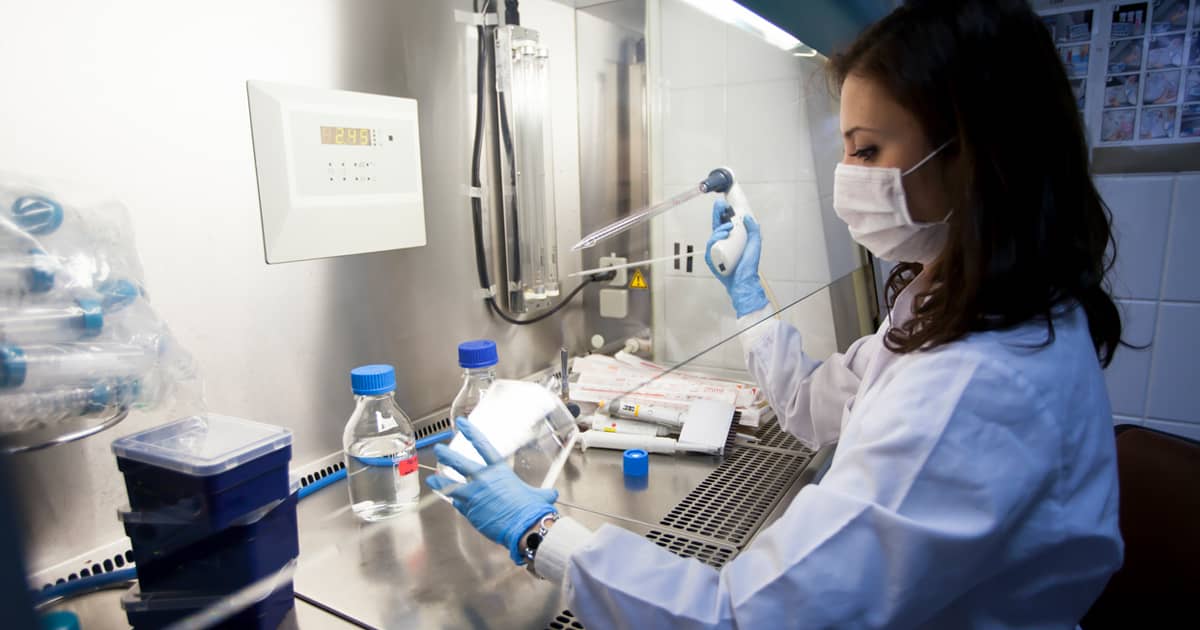In the beginning of February 2021, a new medical biotech partnership was announced, giving hopes for rapid advances in HIV treatment/prevention research.
Two companies have put their heads together in hopes that the collaboration will result in the development of human immunodeficiency virus (HIV) immunotherapy.
HIV Immunotherapy Development Project Launched
Gilead Sciences, an American biopharmaceutical company that has been focusing extensively on HIV research, announced that it will be partnering up with Gristone, a cancer biotech company, on the development of an effective HIV immunotherapy option. Originally started as a cancer drug development company, Gristone has five years of experience in the field of biotech. Until present, the company’s research has been focused on personalised, donor-based cancer immunotherapy.
Recently, however, the company has also dedicated some of its research to infectious diseases. In the beginning of 2021, Gristone announced its intentions to work on the development of a coronavirus vaccine.
Gristone is using its cancer research to expand its efforts in the field of infectious diseases. The company’s vaccine will work by getting a stronger response from the T-cells – one of the most important components of the immune system. As per the official announcement, the coronavirus vaccine is bound to enter phase one of clinical trials in the near future.
This very mechanism that focuses on T-cell functioning is the one that Gilead Sciences took an interest in. You probably know that once it enters the human body, HIV targets the T-cells in order to replicate. If left unchecked, the virus brings the T-cell count to dangerously low levels. When this happens, a person moves from being HIV-positive to having AIDS.
What Is HIV Immunotherapy and How Does It Work?
According to an official Gilead announcement, the immunotherapy will wok much like a vaccine against HIV.
The aim of the new product would be to “teach” the immune system to attack and destroy HIV. In this sense, the immunotherapy developed by the two company will work more like a treatment option for individuals already infected with HIV rather than a prevention (like HIV PEP or PrEP, for example).
Gilead already develops and sells numerous HIV therapies. Currently, there are 11 commercially-available pharmaceutical products developed by the Gilead team. The company is also working on a new generation of therapeutic options that go beyond antiretroviral medications.
According to company statistics, over 12.5 million across the world receive HIV treatments developed by Gilead. Gilead is constantly launching new pilots to perfect its products, including an initiative targeted at girls and women in Sub-Saharan Africa and a testing program in Tanzania.
One of the company’s primary goals is to create longer lasting treatment options. This is where its brand new partner steps in.
The immunotherapy approach will use Gristone’s T-cell strengthening technology to develop a vaccine-like preparation. If the new immunotherapy is successful, it will help the immune system identify, target and destroy the cells that have become infected by HIV.
The Key to Developing an Effective HIV Vaccine?
Many experts believe that immunotherapy holds the key to the creation of an HIV vaccine – something that medical researchers haven’t managed to achieve so far.
The aim of immunotherapy is to help the body deal with the virus in a way that eliminates the need for the elimination of antiretroviral therapy. The Gilead and Gristone research isn’t the first effort made in that direction. In 2019, the American Journal of Managed Care announced that a medical team is working on another type of immunotherapy for HIV that activates specific immune cells capable of keeping the viral load in check. The research is based on observations about the way that cytomegalovirus works in the human body. Just like HIV, it can remain hidden for prolonged periods of time, activating its replication when the conditions are just right.
Antiretroviral therapy is only effective against an active virus. This means that it can stop the process but it cannot replicate HIV that remains hidden and latent at the time of administration. Because of that limitation, antiretroviral therapy has to be taken for life. Otherwise, HIV will eventually activate itself and begin targeting T-cells once again.
We still have a long way to go until the development of effective HIV immunotherapy. There are numerous challenges to overcome, as the functioning of the immune system is very complex. In time, however, this alternative approach to HIV treatment could give patients a long-lasting solution that makes antiretrovirals redundant.
Anti-cancer immunotherapy and the development of a new class of HIV medication have a lot in common. This is the reason why Gilead, Gristone and other companies before them have made the connection, attempting to bring one type of research into another field.
Learn Your Status Now!
As you can see, HIV research is advancing rapidly.
The pharmaceutical options available today help control the virus and they will become even more targeted in the years to come.
This is why you need to know your status. Finding out that you are HIV-positive soon after getting infected will give you the best chances to suppress the viral load and go back to normal life.
HIV testing and prophylactic/treatment options are readily available in Singapore. If you have questions about them, contact reputable healthcare professionals like the Shim Clinic team. We can consult you confidentially, help you determine your status (other STD testing options are available, as well) and refer you for a treatment upon necessity.

